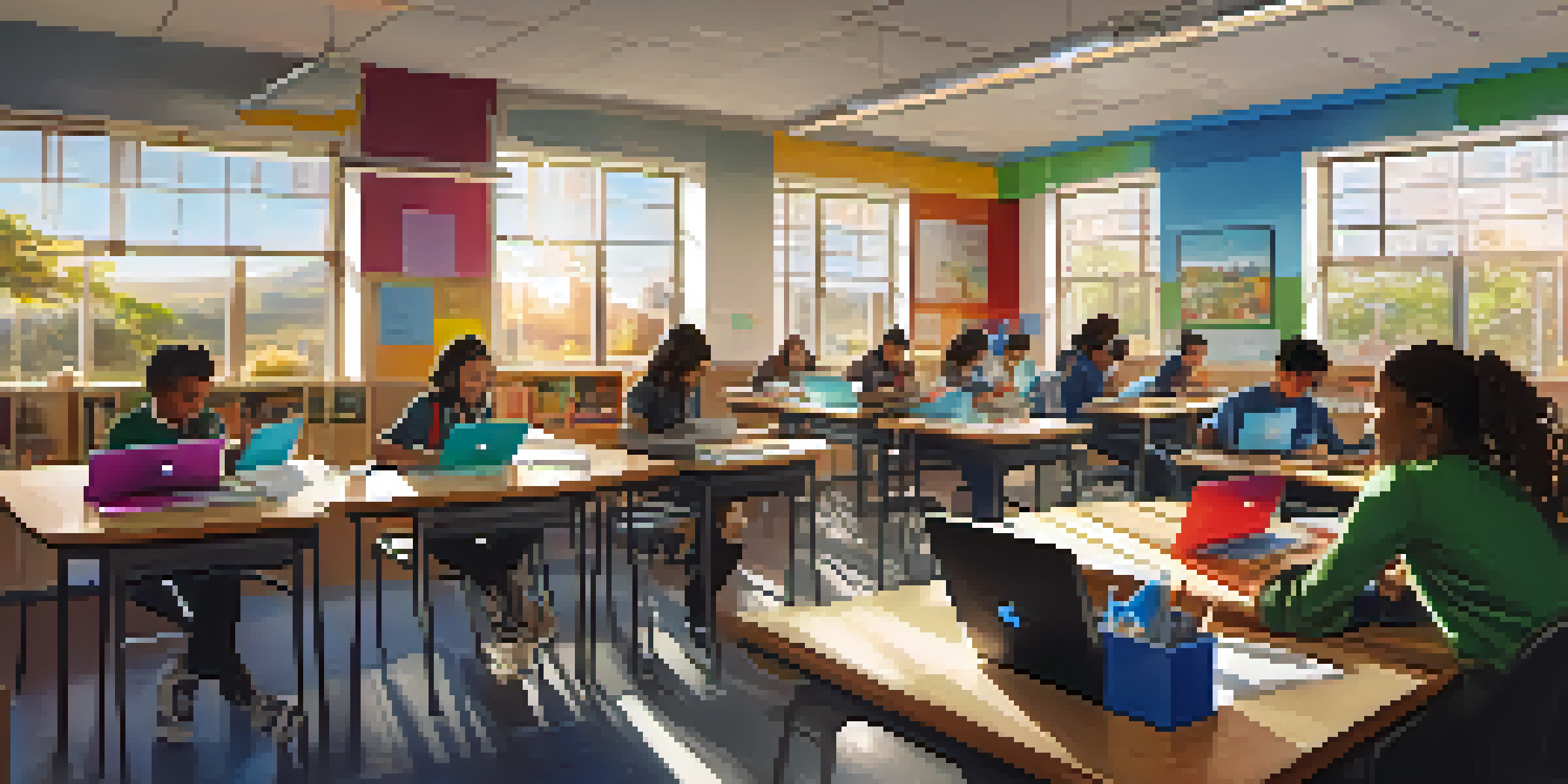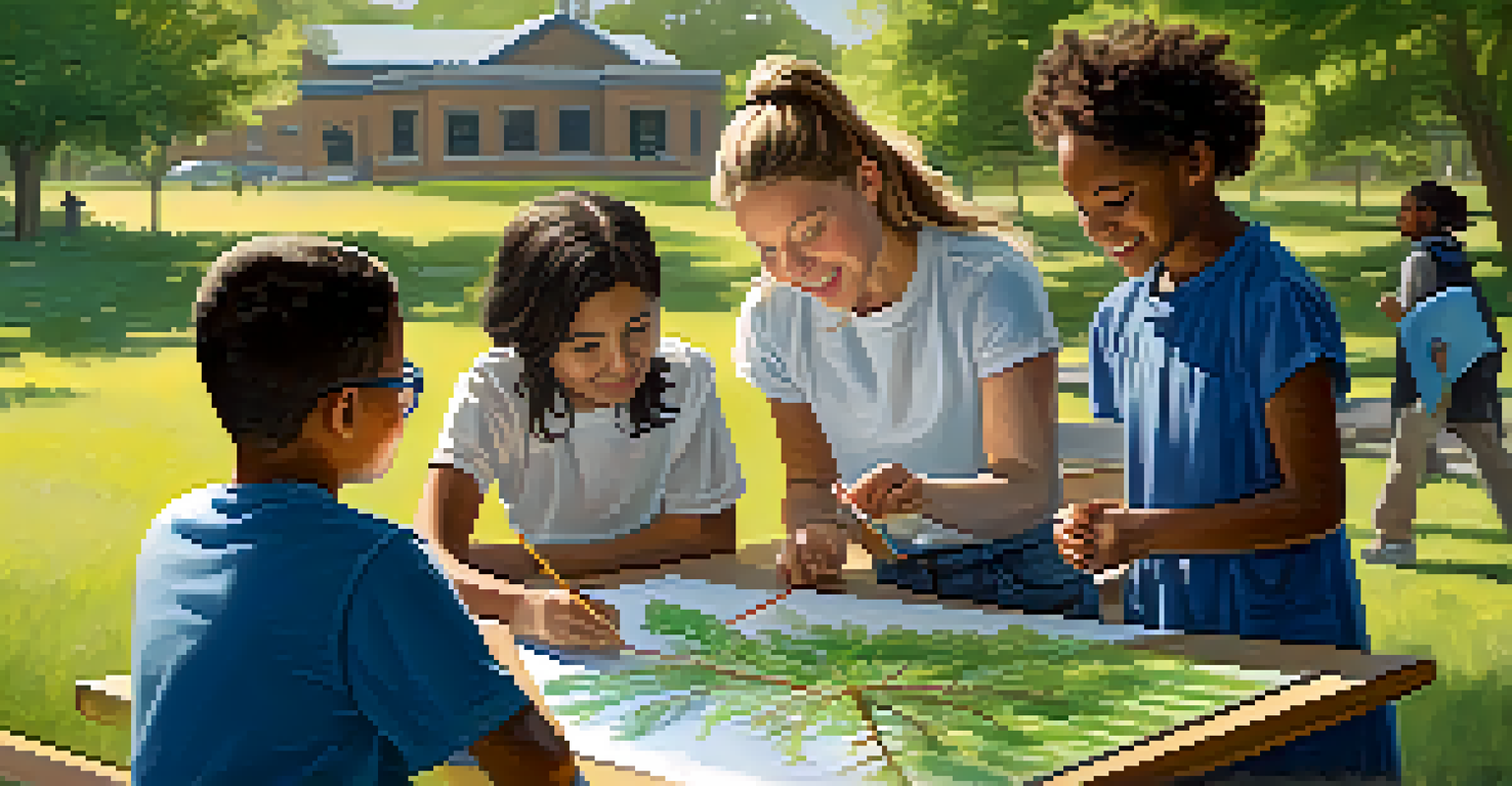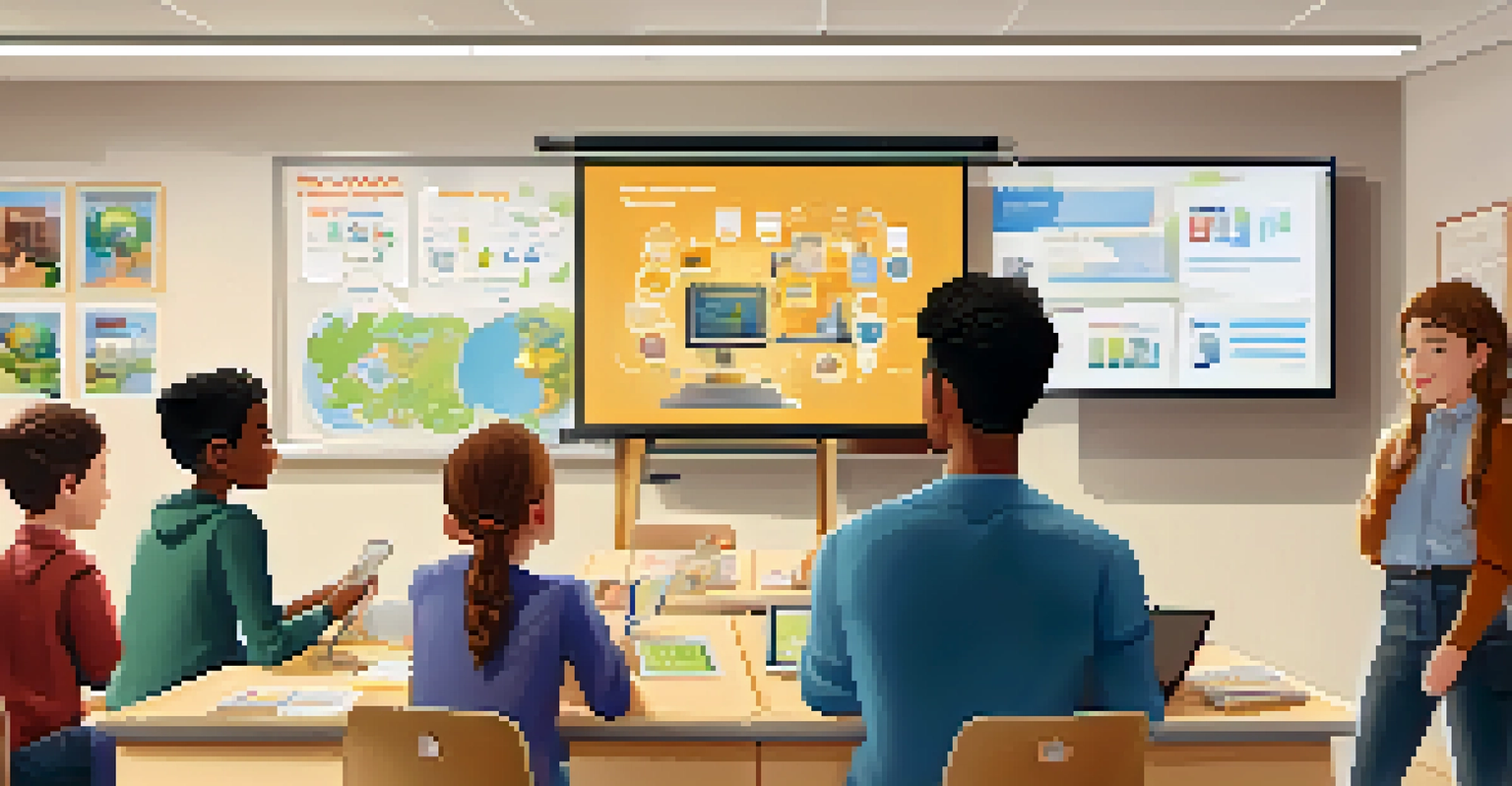Engaging Students with Personalized Learning Through Projects

Understanding Personalized Learning in Education
Personalized learning is a tailored educational approach that considers each student's individual needs, interests, and learning styles. By focusing on the unique strengths and challenges of every student, this method encourages deeper engagement and ownership of the learning process. Teachers play a crucial role in facilitating personalized learning by providing choices and adaptive resources.
Personalized learning is not just a trend; it’s a transformation in how we understand the role of learners in their education.
One effective way to implement personalized learning is through project-based learning (PBL), where students engage in real-world projects that resonate with their interests. This hands-on approach not only fosters creativity but also allows students to apply their knowledge in practical scenarios. For instance, a student passionate about environmental science could work on a project addressing local sustainability issues.
Overall, personalized learning promotes a more inclusive and motivating educational environment, allowing students to thrive. By integrating PBL, educators can create a dynamic classroom atmosphere where learners feel valued and empowered to explore subjects that matter to them.
The Benefits of Project-Based Learning
Project-based learning offers numerous benefits that align perfectly with personalized learning. It encourages critical thinking, collaboration, and problem-solving, essential skills for the 21st century. When students work on projects, they not only acquire knowledge but also learn how to apply it in real-life contexts.

Additionally, PBL fosters a sense of community among students as they often collaborate in teams. This collaboration can lead to the development of social skills, including communication and empathy. For example, a group project on a historical event allows students to share different perspectives and learn from one another.
Personalized Learning Drives Engagement
Tailoring education to individual student needs fosters deeper engagement and ownership of the learning process.
Moreover, PBL can cater to diverse learning styles, making it easier for all students to participate and excel. Visual learners might thrive through creating presentations, while kinesthetic learners may engage better through hands-on activities, creating a rich learning experience for everyone.
Creating Engaging Projects for Students
To effectively engage students through projects, educators must design assignments that spark interest and curiosity. This could involve giving students a choice in their topics or allowing them to propose their own projects based on personal passions. For instance, a student interested in technology could design an app to solve a school-related problem.
Project-based learning engages students in real-world problem solving, making learning relevant and exciting.
Incorporating elements of choice not only enhances motivation but also allows students to take ownership of their learning journey. When students feel invested in their projects, they are more likely to engage deeply and produce high-quality work. This sense of agency is crucial in fostering a love for learning.
Additionally, connecting projects to real-world issues can make learning more relevant. For example, students might explore local community challenges, encouraging them to think critically about solutions. This approach not only enriches their learning experience but also fosters a sense of responsibility toward their community.
Assessing Student Progress in PBL
Assessment in project-based learning differs significantly from traditional testing methods. Instead of focusing solely on grades, educators can evaluate student progress through various means, such as self-assessments, peer reviews, and presentations. This holistic approach provides a clearer picture of a student's understanding and skills.
Rubrics can be particularly helpful in PBL settings, as they outline clear expectations and criteria for success. By involving students in the creation of these rubrics, teachers promote a sense of ownership and understanding of what quality work entails. This involvement can enhance accountability and motivation.
Project-Based Learning Enhances Skills
PBL cultivates critical thinking, collaboration, and problem-solving abilities essential for success in the 21st century.
Moreover, providing ongoing feedback throughout the project allows students to reflect on their learning and make necessary adjustments. Continuous dialogue between teachers and students fosters a growth mindset, encouraging learners to view challenges as opportunities for improvement rather than obstacles.
Incorporating Technology in Personalized Learning
Technology plays a pivotal role in enhancing personalized learning and project-based education. Various tools and platforms can help students explore topics, collaborate with peers, and present their findings in innovative ways. For example, applications like Google Classroom and Trello facilitate project management and collaboration among students.
Additionally, technology enables access to a wealth of resources beyond the classroom. Students can connect with experts, engage in virtual field trips, or access interactive content that deepens their understanding of a subject. This expanded access not only enriches their learning experience but also empowers them to pursue knowledge independently.
Furthermore, technology can help track student progress and provide personalized learning paths. Using analytics, teachers can identify areas where students may need additional support or enrichment, ensuring that every learner receives the attention they deserve.
Fostering a Supportive Learning Environment
Creating a supportive learning environment is essential for the success of personalized learning through projects. Educators should encourage open communication and collaboration to build trust among students. When students feel safe to express their ideas and ask questions, they are more likely to engage fully in their projects.
Promoting a growth mindset is also vital. Encouraging students to embrace challenges and learn from failures can foster resilience and perseverance. For instance, celebrating effort and improvement rather than just final outcomes can instill a sense of pride in their work.
Technology Supports Personalized Learning
Innovative tools and platforms enhance personalized learning experiences by providing access to resources and facilitating collaboration.
Additionally, involving parents and the community can strengthen the support system for students. By sharing project goals and progress with families, educators can create a network that reinforces the value of personalized learning and collaboration beyond the classroom.
The Future of Personalized Learning and PBL
The future of education lies in the continued integration of personalized learning and project-based approaches. As educators recognize the importance of tailoring instruction to meet individual needs, we can expect to see more innovative practices emerge. This shift will help prepare students for an increasingly complex and interconnected world.
Moreover, as technology evolves, so too will the tools available for personalized learning. Virtual reality, artificial intelligence, and data analytics are just a few examples of how technology can enhance project-based learning experiences. These advancements promise to create even more engaging and relevant learning opportunities for students.

Ultimately, the goal is to cultivate lifelong learners who are equipped with the skills needed to navigate the challenges of the future. By embracing personalized learning through projects, educators can inspire students to become proactive, creative, and resourceful individuals ready to make a difference in their communities.